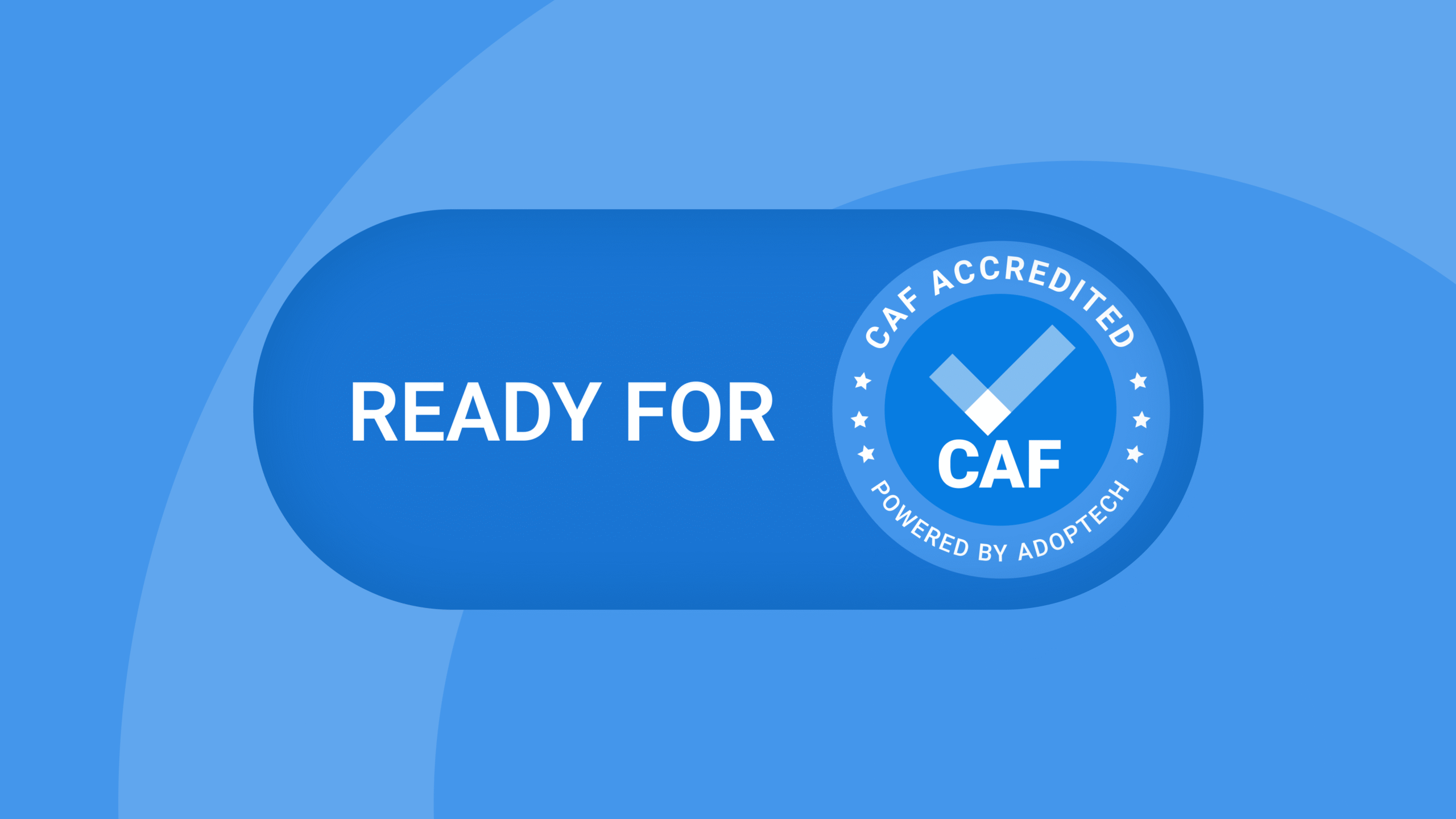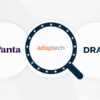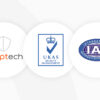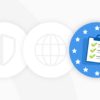Table of Contents
- What is the Cyber Assessment Framework (CAF)?
- Why MSPs Must Comply with CAF
- Key CAF Requirements for MSPs
- CAF vs Cyber Essentials vs ISO 27001
- Implementation Timeline & Steps
- Regulatory Obligations Under CAF
- Getting Started with CAF Compliance
What is the Cyber Assessment Framework (CAF)?
The Cyber Assessment Framework (CAF) is the UK government’s official standard for assessing cyber resilience, developed by the National Cyber Security Centre (NCSC). Unlike prescriptive control frameworks, CAF focuses on outcomes-based cybersecurity, requiring organisations to demonstrate measurable results across four core objectives.
The Four Core CAF Objectives for MSPs
- Managing Security Risk
- Demonstrate robust governance structures for cybersecurity risk management
- Maintain comprehensive risk assessments for systems supporting essential services
- Establish clear accountability frameworks for security decisions
- Protecting Against Cyber Attack
- Implement effective security controls to safeguard critical systems
- Deploy defence-in-depth strategies tailored to threat landscapes
- Maintain up-to-date security measures aligned with emerging threats
- Detecting Cyber Security Events
- Establish continuous monitoring capabilities for critical infrastructure
- Implement regular testing protocols for security defences
- Develop threat detection capabilities spanning all supported services
- Minimising the Impact of Incidents
- Create comprehensive incident response procedures
- Establish rapid service restoration capabilities
- Maintain business continuity plans for essential services
Why MSPs Are Now Under CAF Regulatory Scope
The Growing MSP Cyber Threat Landscape
Recent high-profile cyberattacks on major UK organisations including Jaguar Land Rover, Marks & Spencer, and The Co-op have highlighted critical vulnerabilities in the digital supply chain. MSPs represent a particularly attractive target for threat actors because:
- Single point of failure: Compromising one MSP can provide access to multiple client organisations
- Privileged access: MSPs typically maintain elevated permissions across client systems
- Supply chain amplification: Successful MSP breaches can impact entire sectors simultaneously
Cyber Security and Resilience Bill Impact
The upcoming Cyber Security and Resilience Bill brings MSPs directly under regulatory oversight for the first time, recognising their critical role in UK cyber resilience. This regulatory expansion means:
- MSPs supporting essential services must demonstrate CAF compliance
- Enhanced reporting obligations to regulators and NCSC
- Potential designation as “Critical Suppliers” for high-impact providers
- ICO oversight and regular compliance audits
Key CAF Requirements for MSPs
Security and Incident Reporting Obligations
24-Hour Incident Notification Requirement
- Report security incidents affecting essential services within 24 hours
- Submit detailed incident analysis within 72 hours
- Maintain comprehensive incident logs for regulatory review
Enhanced Regulatory Oversight
- Regular compliance audits and assessments
- Ongoing evidence gathering for security practices
- Potential unscheduled inspections for critical suppliers
ICO as Lead Regulator
- Information Commissioner’s Office assumes primary regulatory authority
- Regular engagement required on compliance matters
- External audit requirements for designated critical suppliers
CAF vs Cyber Essentials vs ISO 27001: Control Comparison
| Framework | Typical Control Count | Complexity Level | Target Organisations |
| Cyber Essentials | ~30 controls | Entry-level | Small businesses |
| CAF | ~60 controls | Intermediate | MSPs, essential service providers |
| ISO 27001 | ~90 controls | Advanced | Businesses of all sizes |
Key Differences for MSPs
CAF Positioning: CAF typically sits between Cyber Essentials and ISO 27001, providing a balanced approach to cybersecurity governance without the overhead of a full Information Security Management System implementation.
Client Expectations: Even MSPs initially out of regulatory scope will face client demands for CAF evidence, making proactive compliance a competitive differentiator.
Scalability Considerations: Larger MSPs designated as critical suppliers may face control requirements exceeding ISO 27001 standards.
CAF Implementation Timeline & Strategy
Phase 1: Assessment and Gap Analysis (Months 1-2)
Current State Analysis
- Inventory of existing security controls and documentation
- Map current practices against CAF objectives
- Identify compliance gaps and resource requirements
Stakeholder Engagement
- Establish CAF compliance team with clear responsibilities
- Engage with clients regarding CAF requirements and timelines
- Co-ordinate with legal and regulatory advisers
Phase 2: Control Implementation (Months 3-8)
Priority Control Areas
- Governance and Risk Management: Establish formal cybersecurity governance structures
- Technical Controls: Implement monitoring, detection, and response capabilities
- Documentation: Create comprehensive policies, procedures, and evidence packages
- Training and Awareness: Develop CAF-specific training programmes for staff
Automation Integration
- Deploy compliance management platforms for continuous monitoring
- Implement automated evidence collection and reporting systems
- Establish real-time compliance dashboards for ongoing oversight
Phase 3: Testing and Validation (Months 9-12)
Internal Validation
- Conduct comprehensive control testing across all CAF objectives
- Perform tabletop exercises for incident response procedures
- Validate documentation completeness and accuracy
External Assessment Preparation
- Where necessary, co-ordinate with external auditors for formal assessment
- Prepare comprehensive evidence packages for regulatory review
CAF Regulatory Requirements and Compliance Obligations
Mandatory Reporting Timelines
Immediate Response Requirements
- 24 hours: Initial incident notification to regulators and NCSC
- 72 hours: Detailed incident report with impact assessment
- Ongoing: Regular compliance status updates and evidence provision
Critical Supplier Designation Criteria
Organisations may receive Critical Supplier status if:
- Service disruption would significantly impact essential services
- Client base includes multiple essential service providers
- Geographic or sector concentration creates systemic risk
Enhanced Requirements for Critical Suppliers
- Quarterly compliance assessments
- Mandatory external security audits
- Enhanced incident response capabilities
- Advanced threat intelligence integration
Getting Started with CAF Compliance: Practical Steps
1. Understand Your Specific Requirements
Service Categorisation
- Identify which services qualify as supporting “essential services”
- Determine applicable CAF objectives and principles
- Map client requirements to regulatory expectations
Risk Assessment
- Conduct comprehensive threat modelling for MSP operations
- Assess potential impact of service disruptions
- Evaluate likelihood of Critical Supplier designation
2. Leverage Automation for Efficiency
Compliance Management Platforms
Modern CAF compliance requires automated solutions that can:
- Monitor CAF objectives and assign remediation tasks
- Automatically map existing controls to CAF principles
- Track implementation progress with real-time dashboards
- Generate audit-ready evidence packages
- Provide continuous compliance status monitoring
Key Automation Benefits
- Reduce manual compliance overhead by up to 70%
- Ensure consistent evidence collection and documentation
- Enable proactive risk identification and remediation
- Streamline regulatory reporting and audit preparation
3. Engage Expert Support Early
CAF Specialist Consultation
- Interpret complex regulatory requirements for your specific context
- Identify implementation shortcuts and efficiency opportunities
- Provide ongoing guidance for emerging regulatory changes
- Support audit preparation and regulatory engagement
Implementation Support Services
- Gap analysis and remediation planning
- Policy and procedure development
- Staff training and awareness programmes
- Ongoing compliance monitoring and optimisation
Competitive Advantage Through Early CAF Adoption
Market Positioning Benefits
Trust and Credibility
- Demonstrate proactive cybersecurity leadership
- Differentiate from competitors still developing CAF capabilities
- Build stronger client relationships through enhanced security posture
Business Development Opportunities
- Access new contracts requiring CAF compliance
- Command premium pricing for enhanced security services
- Expand into essential services sectors with confidence
Risk Mitigation
- Reduce likelihood of security incidents and their associated costs
- Minimise regulatory penalties and reputational damage
- Strengthen overall business resilience and continuity
Key Takeaways for MSP CAF Compliance
CAF compliance is becoming mandatory for MSPs supporting essential services, with client expectations extending beyond formal regulatory scope.
Early preparation provides competitive advantage by demonstrating cybersecurity leadership and enabling access to new market opportunities.
Automation and expert guidance are essential for efficient implementation and ongoing compliance management.
The regulatory landscape is evolving rapidly, making proactive engagement with CAF requirements crucial for long-term business success.








